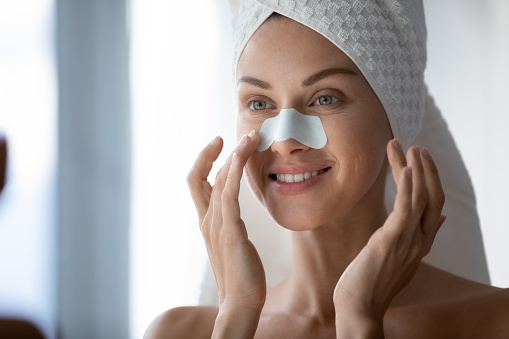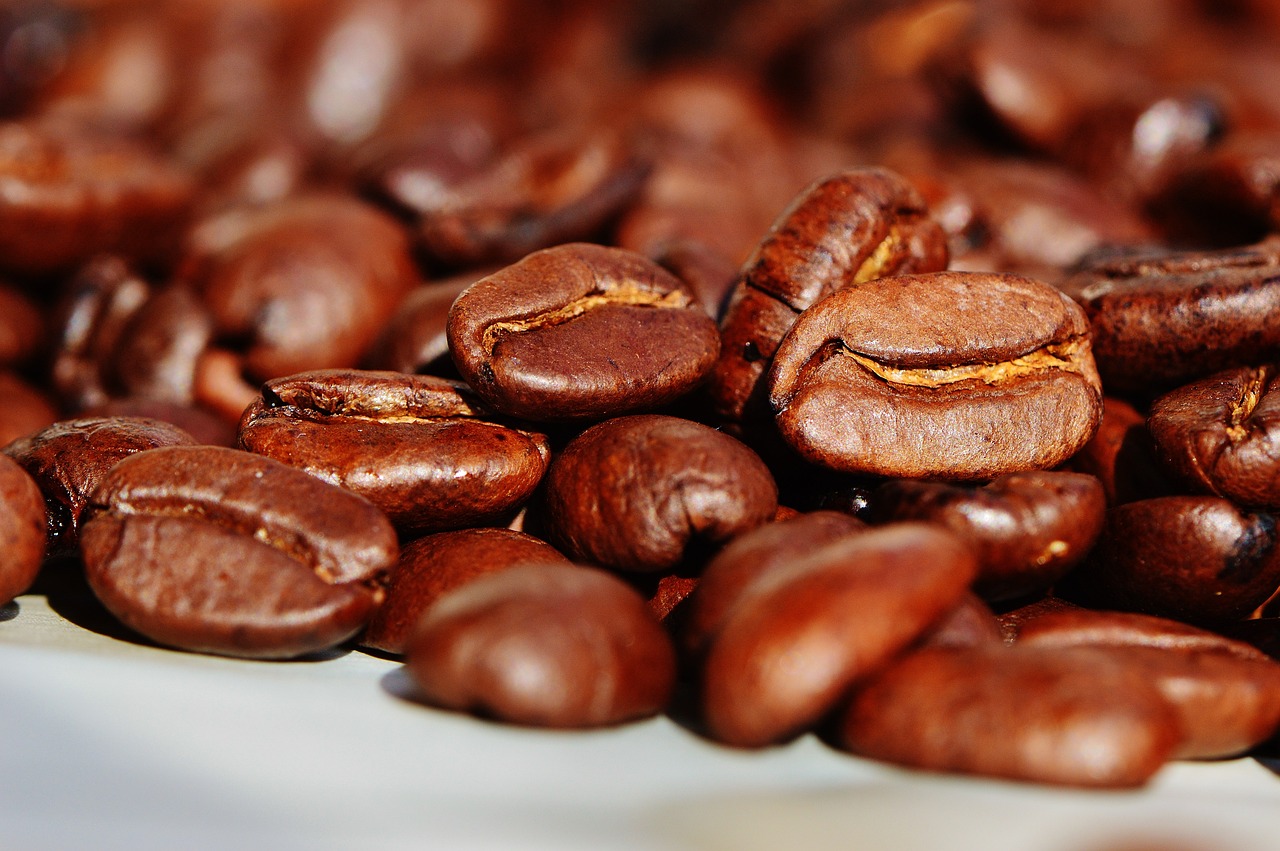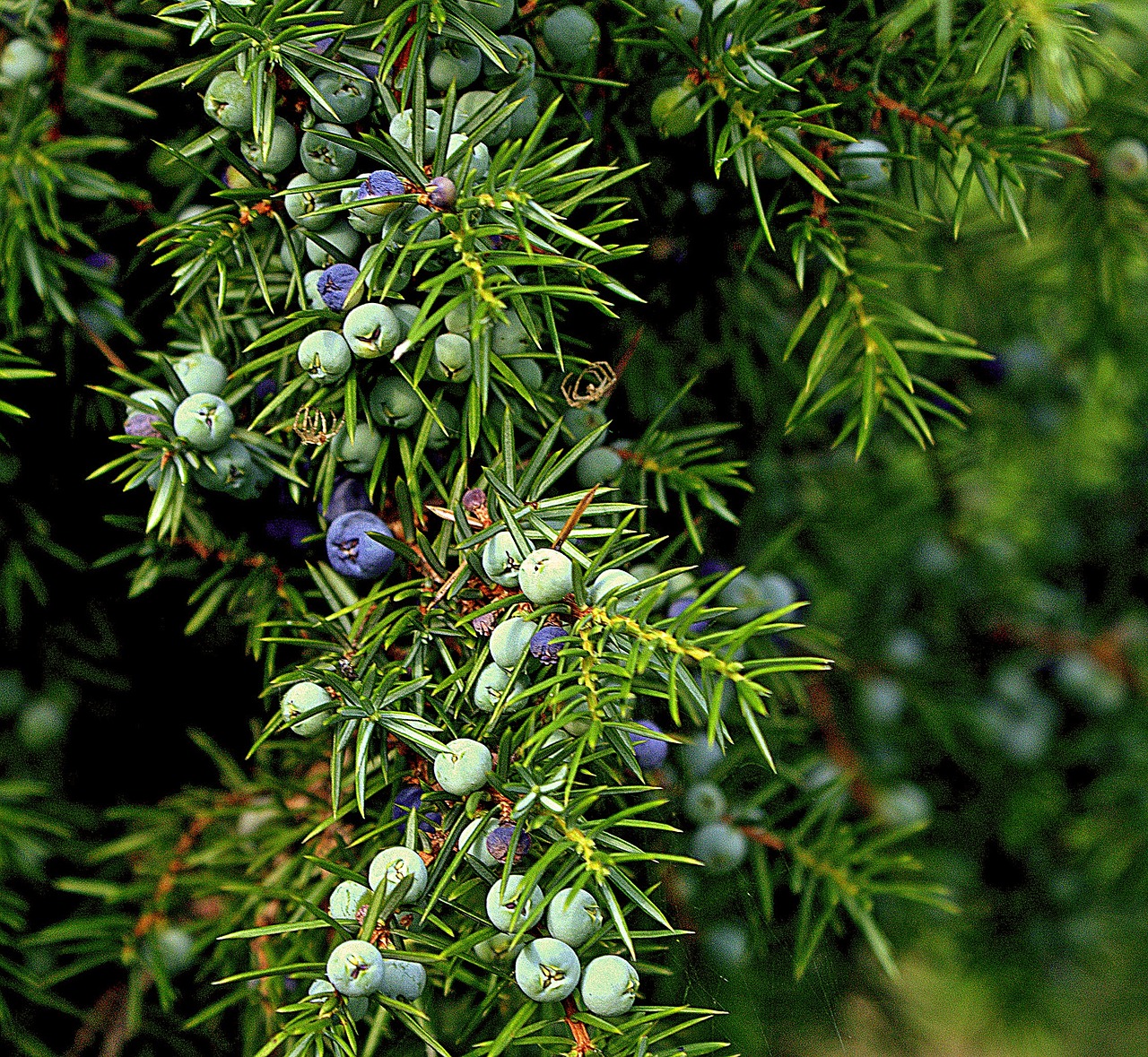Beauty
How to prevent blackheads – blackhead removal routine

Remove blackheads naturally
I once felt frustrated with the blackheads on my face, which forced me to learn how to remove blackheads naturally and some effective treatments to treat them, and now I present them to you. Because the word blackhead spoils my mood because it reminds me of the dirty black spots on my clear skin, I first tried to find out the root cause and then the ways of how to remove blackheads naturally permanently to make my skin free of grimy blackheads. And I am always searching on the internet for how to get rid of blackheads.

Causes of blackheads
It is the accumulation of excess fat in the skin. As a result, this problem is very common among people with oily skin.
Treating blackheads naturally
It’s time to get clear skin free of blackheads. Try these remedies and enjoy the much-desired smooth and clear skin.
milk for blackheads
When the milk is applied to the affected skin and gently rubbed, the blackheads disappear from the skin, leaving the skin clear. The lactic acid in milk removes dead skin cells from the skin. To make it clearer, add some nutmeg powder to the milk and then apply it to your skin. Keep it for 15 minutes and then wash it off. Repeat it regularly for best results. The most surprising part is that it is beneficial for all skin types.
Lemon juice and baking soda for blackheads
Lemon juice and baking soda remove dirt and impurities from clogged skin pores. It does the work of toner and skin whitening dye. Take a cotton ball and wipe it with lemon juice + soda paste. Now apply it to the skin. Leave the paste on the face for 10 to 15 minutes and then rinse it off. If you are looking for how to get rid of blackheads overnight, then this is the best home remedy for blackheads and pores.
It can also be used in the form of a mixture of curd and salt. This combination works to lighten the skin, remove dead skin cells and moisturize it. This treatment can be repeated every day or once a week. It is best suited for all skin types. Just be careful not to add salt to the mixture if there is any cut or wound on your skin, to avoid skin irritation.
Ginger is great for blackheads
Boil some water in a pan with some ginger. Remove the pan from the stove and place your face over the pan. Cover the face with a towel. This will provide steam for your face and open the facial pores. Now apply a cleanser such as a natural scrub or sugar scrub.
How to geet riid of blackheads on the nose permanently
Use toothpaste for that
Drink plenty of water daily.
Apply warm honey to the skin. Leave it on for 15 minutes and clean it with a damp cloth.
Rub half a tomato on the affected area and rinse it off after 20 minutes.
Apply a mixture of water and baking soda on the blackheads and wash it off after 10 minutes.
Use the mud mask on the face for 15 minutes, wash it off, and get rid of blackheads.
You don’t need to visit any salon or spa, especially for skin treatment. Get into the habit of making home remedies once and let Onella be your advisor.
Beauty
Benefits of coffee for hair and ways to use it

Benefits of coffee for hair
Coffee has gained popularity not only as a beverage but also as a potential ingredient for hair care. Here are some potential benefits of coffee for hair and different ways to use it:
- Stimulates hair growth: The caffeine present in coffee is known to stimulate hair follicles and promote hair growth. It may help increase blood circulation to the scalp, providing essential nutrients to the hair roots.
- Reduces hair loss: Coffee may help inhibit the effects of DHT (dihydrotestosterone), a hormone associated with hair loss. Applying coffee topically may block DHT and reduce hair fall.
- Adds shine and luster: Coffee can add shine and luster to dull hair. It may enhance the natural color and make the hair appear more vibrant.
- Strengthens hair strands: The antioxidants present in coffee, such as polyphenols, can help strengthen the hair shaft, reducing breakage and split ends.
- Acts as a natural hair dye: Coffee can act as a natural dye, particularly for dark hair. It may provide subtle brown tones or enhance existing brown color.

Here are a few ways to use coffee for hair:
- Coffee rinse: Brew a strong cup of coffee and let it cool. After shampooing your hair, pour the coffee over your hair and massage it into the scalp. Leave it on for a few minutes before rinsing thoroughly.
- Coffee hair mask: Mix brewed coffee with a natural hair mask ingredient, such as plain yogurt or coconut oil. Apply the mixture to damp hair and leave it on for 20-30 minutes before rinsing.
- Coffee oil treatment: Infuse coffee grounds in warm coconut or olive oil for a few days. Strain the oil and apply it to the scalp and hair, massaging gently. Leave it overnight and wash it off the next morning.
- Coffee spray: Brew a strong cup of coffee and allow it to cool. Transfer it to a spray bottle and spritz it onto your hair as a leave-in conditioner. Avoid using too much to prevent staining.
Remember to perform a patch test before applying coffee or any new ingredient to your hair or skin to check for potential allergic reactions. Additionally, individual results may vary, so it’s important to experiment and find the method that works best for your hair type and needs.
Beauty
Skin Pigmentation Natural Remedies

Natural recipes for the treatment of skin pigmentation
Skin pigmentation refers to the darkening or discoloration of the skin, often caused by various factors such as sun exposure, hormonal changes, aging, or certain medical conditions. While natural remedies can help improve the appearance of pigmentation, it’s important to note that they may not eliminate the issue. It’s always a good idea to consult with a dermatologist for an accurate diagnosis and appropriate treatment options. Here are a few natural recipes that you can try:
Lemon Juice and Honey Mask:
- Mix equal parts lemon juice and honey.
- Apply the mixture to the affected areas.
- Leave it on for 20 minutes before rinsing with lukewarm water.
- Repeat this remedy a few times a week.
Note: Lemon juice may cause skin sensitivity, so it’s essential to perform a patch test before applying it to larger areas. Additionally, avoid sun exposure after using lemon juice on the skin as it can cause photosensitivity.
Aloe Vera Gel:
- Extract fresh gel from an aloe vera leaf.
- Apply the gel directly to the pigmented areas.
- Leave it on for 30 minutes before rinsing with water.
- Repeat this process daily for several weeks.
Turmeric and Milk Paste:
- Mix 1 teaspoon of turmeric powder with enough milk to form a paste.
- Apply the paste to the affected areas.
- Leave it on for 20-30 minutes before rinsing with water.
- Repeat this remedy a few times a week.

Potato Juice:
- Grate a potato and squeeze out the juice.
- Apply the juice to the pigmented areas using a cotton ball.
- Leave it on for 20 minutes before rinsing with water.
- Repeat this process daily for a few weeks.
Apple Cider Vinegar Toner:
- Dilute apple cider vinegar with an equal amount of water.
- Apply the mixture to the affected areas using a cotton ball.
- Leave it on for 5-10 minutes before rinsing with water.
- Repeat this process once daily, gradually increasing the exposure time.
Remember, it’s important to be consistent and patient when using natural remedies. If you don’t see significant improvement or experience any adverse reactions, discontinue use and consult a dermatologist for further guidance.
Beauty
Juniper Berries: Benefits & Uses

6 BENEFITS & USES OF JUNIPER BERRIES
Juniper berries, the fruit of the juniper tree (Juniperus communis), have been used for various purposes for centuries. Here are six benefits and uses of juniper berries:
- Culinary Uses: Juniper berries are commonly used as a spice in cooking, particularly in European cuisines. They have a unique flavor profile that is often described as piney, citrusy, and slightly peppery. Juniper berries are a key ingredient in dishes like sauerkraut, pickles, game meats, and certain spirits like gin.
- Digestive Aid: Juniper berries have been traditionally used as a digestive aid due to their carminative properties. They can help relieve symptoms such as bloating, gas, and indigestion. Juniper berries are sometimes used to make herbal teas or tinctures that can support digestive health.
- Antioxidant Properties: Juniper berries are rich in antioxidants, including flavonoids and polyphenols, which help protect the body against oxidative stress and free radicals. Antioxidants are beneficial for overall health and may help reduce the risk of chronic diseases.
- Diuretic Effects: Juniper berries are known for their diuretic properties, meaning they can increase urine production and promote detoxification. This effect can help reduce water retention, support kidney function, and flush out toxins from the body.
- Respiratory Support: Juniper berries have been used in traditional medicine to support respiratory health. They may help alleviate symptoms of respiratory conditions like coughs, bronchitis, and congestion. Juniper berry essential oil is sometimes used in aromatherapy or as an ingredient in chest rubs.
- Skin Care: The antimicrobial and anti-inflammatory properties of juniper berries make them beneficial for skin health. Juniper berry extract or oil is often used in natural skincare products to help soothe and cleanse the skin, treat acne, and reduce inflammation. However, it’s important to note that juniper berry oil can be irritating to some individuals, so it should be used with caution and in diluted form.
While juniper berries offer potential benefits, it’s important to consult with a healthcare professional before using them for therapeutic purposes, especially if you have any underlying health conditions or are taking medications.

WAYS TO USE JUNIPER BERRIES
There are several ways to use juniper berries in various forms. Here are some common methods:
- Culinary Use: Crush juniper berries using a mortar and pestle or a spice grinder and use them as a spice in cooking. They are often used in marinades for game meats, stews, sauerkraut, and pickles. Juniper berries can also be added to spice blends or used to flavor sauces and soups.
- Herbal Tea: Juniper berries can be used to make herbal tea. Crush a few berries and steep them in hot water for about 10 minutes. The resulting tea has a distinct flavor and can be consumed on its own or blended with other herbs for added benefits.
- Infused Spirits: Juniper berries are a primary ingredient in gin, contributing to its characteristic flavor. You can infuse spirits like vodka or gin with juniper berries to create your own flavored alcoholic beverages. Simply add crushed berries to the spirit and let it steep for a few days or weeks before straining.
- Tincture: Juniper berry tincture is made by soaking crushed berries in alcohol, such as vodka or brandy, for several weeks. This creates a concentrated liquid extract that can be used in small doses for digestive support or other medicinal purposes. Consult an herbalist or follow a trusted recipe for proper tincture preparation.
- Aromatherapy: Juniper berry essential oil is used in aromatherapy for its therapeutic properties. It can be diffused in a room to promote relaxation, added to bathwater for a soothing experience, or used in massage oils for its rejuvenating effects. Ensure to follow proper dilution guidelines and consult a qualified aromatherapist for guidance.
- Skincare Products: Juniper berry extract or oil is used in natural skincare products such as soaps, lotions, and creams. These products may help cleanse the skin, reduce inflammation, and promote overall skin health. Ensure to follow the instructions provided by the product manufacturer.
Remember to use juniper berries in moderation and consult a healthcare professional or herbalist for personalized advice, especially if you have any specific health concerns or are taking medications.
DISCOVER THE MANY USES OF JUNIPER BERRIES
Juniper berries have a wide range of uses across various domains. Here are some additional uses of juniper berries:
- Natural Cleaning: Juniper berries can be used as a natural cleaning agent. Create a homemade cleaning solution by simmering crushed juniper berries in water, then strain and use the liquid to clean surfaces. The antimicrobial properties of juniper berries can help disinfect and freshen your living space.
- Herbal Medicine: Juniper berries have been used in traditional herbal medicine for their medicinal properties. They are believed to have diuretic, antiseptic, anti-inflammatory, and antifungal effects. Juniper berry extracts or tinctures can be used to support urinary health, alleviate digestive issues, and assist with joint pain.
- Craft and Decor: Dried juniper berries can be used in craft projects and as decorative elements. They add a natural touch to wreaths, potpourri, and floral arrangements. Juniper berries can also be used to create unique and fragrant homemade sachets or scented candles.
- Culinary Preservatives: Juniper berries contain natural preservatives that help inhibit the growth of certain bacteria and fungi. They are commonly used in preserving and curing meats, particularly in traditional dishes like sausages and salami. The aromatic and tangy flavor of juniper berries adds depth to preserved foods.
- Outdoor Cooking: Juniper berries can be used for outdoor cooking. They can be added to smoking chips or placed directly on charcoal to impart a distinct flavor to grilled or barbecued meats. The smoky, resinous aroma of juniper berries enhances the taste of grilled dishes.
- Potpourri and Aromatics: Dried juniper berries can be added to potpourri blends to release a pleasant and refreshing scent. Crushed juniper berries can also be used in homemade scented sachets or drawer fresheners to impart a natural aroma and help repel pests.
It’s important to note that while juniper berries have various uses, they should be used in moderation and with caution. Pregnant women, individuals with kidney disorders, or those on certain medications should consult with a healthcare professional before using juniper berries for medicinal purposes.
-

 Beauty4 years ago
Beauty4 years agoAll you need to know about the problem of excessive hair in women
-

 Nutrition4 years ago
Nutrition4 years agoBenefits of eating fruits daily
-

 Beauty3 years ago
Beauty3 years agoRecipes for hair lengthening – the fastest 8 recipes for hair lengthening and intensification
-

 Fitness4 years ago
Fitness4 years agoBack exercises and ways to apply them to get rid of problems
-

 Lifestyle4 years ago
Lifestyle4 years agoPromote a healthy lifestyle
-

 Beauty4 years ago
Beauty4 years agoBenefits of lavender – Here are more than 10 benefits of lavender for the body
-

 Beauty3 years ago
Beauty3 years agoBariatric Surgery in USA
-

 Beauty4 years ago
Beauty4 years agoBenefits of drinking olive oil for the skin and the immune system of the body






